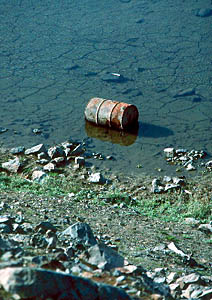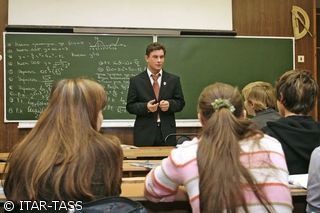Company working with universities to create courses that teach students to write secure code
Published:
22 March 2003 y., Saturday
Microsoft is working with a number of universities in several countries to set up courses that teach students how to write secure code, the company said Friday. The University of Leeds in England is the first to announce such a course.
As part of an 11 week module that will start in January next year, third-year undergraduates at the University of Leeds will be asked to hack into software and fix any security bugs they find, Nick Efford, senior teaching fellow at the School of Computing, University of Leeds, said.
Students will be confronted with security vulnerabilities such as buffer overruns and taught how to prevent those when writing software. That focus on security in software engineering and the hands-on experience makes the course different from most existing security classes, which typically focus on network security and cryptography, according to Efford.
Microsoft is partly funding Efford's fellowship and is helping with the curriculum's content. The Redmond, Washington, software maker is in talks with other universities on similar programs, Stuart Okin, chief security officer for Microsoft in the U.K. said.
Šaltinis:
infoworld.com
Copying, publishing, announcing any information from the News.lt portal without written permission of News.lt editorial office is prohibited.
The most popular articles

The European Commission announced today the award of three of the six contracts for the procurement of Galileo’s initial operational capability.
more »
 The need for energy that does not come from oil, equality between the sexes and more spending on education are just some of the things people have requested using the Parliament's choice boxes.
more »
The need for energy that does not come from oil, equality between the sexes and more spending on education are just some of the things people have requested using the Parliament's choice boxes.
more »
 This week marks the launch of the tenth Interest Rate Challenge, the competition designed to give 16 to 18 year old students across the UK the opportunity to take on the role of the Bank’s Monetary Policy Committee and set monetary policy for the UK to meet the inflation target of 2.0%.
more »
This week marks the launch of the tenth Interest Rate Challenge, the competition designed to give 16 to 18 year old students across the UK the opportunity to take on the role of the Bank’s Monetary Policy Committee and set monetary policy for the UK to meet the inflation target of 2.0%.
more »
 One California company unveiled a solution - a prototype energy station that swaps electric vehicles' empty batteries for fully charged ones.
more »
One California company unveiled a solution - a prototype energy station that swaps electric vehicles' empty batteries for fully charged ones.
more »
 NASA officials have confirmed that the space shuttle Atlantis was hit by a piece of debris that nicked part of its heat shield.
more »
NASA officials have confirmed that the space shuttle Atlantis was hit by a piece of debris that nicked part of its heat shield.
more »
 Atlantis carried a seven-member crew that was scheduled to perform five spacewalks to install and repair instruments and replace positioning gyroscopes on the telescope, which orbits 350 miles above Earth.
more »
Atlantis carried a seven-member crew that was scheduled to perform five spacewalks to install and repair instruments and replace positioning gyroscopes on the telescope, which orbits 350 miles above Earth.
more »
 Artificial grass maker Ten Cate is developing an intelligent pitch in the Netherlands.
more »
Artificial grass maker Ten Cate is developing an intelligent pitch in the Netherlands.
more »
 Russian scientist Olga Speranskaya has taken on one very tough job - to help clean up the vast network of toxic chemical sites in the former Soviet states.
more »
Russian scientist Olga Speranskaya has taken on one very tough job - to help clean up the vast network of toxic chemical sites in the former Soviet states.
more »
 European politicians will be visiting schools around Europe as part of ‘spring day’ 2009.
more »
European politicians will be visiting schools around Europe as part of ‘spring day’ 2009.
more »
 The current experiments show a subject an image and then reconstruct that image based on scans of the brain's visual cortex.
more »
The current experiments show a subject an image and then reconstruct that image based on scans of the brain's visual cortex.
more »
 The children of people who come to live in Europe will have to learn the language of the country they enter from pre-school age.
more »
The children of people who come to live in Europe will have to learn the language of the country they enter from pre-school age.
more »